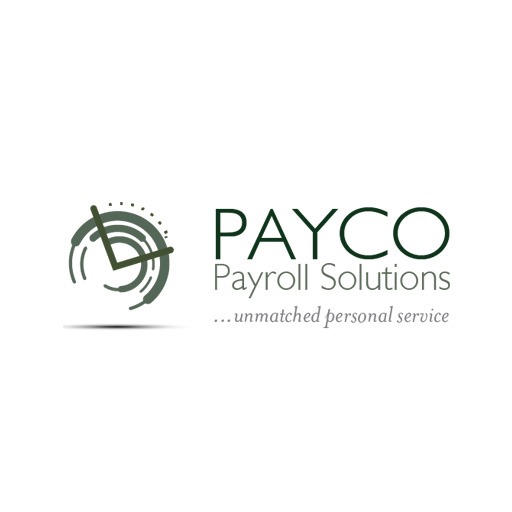Managing payroll can be a complex and time-consuming task for business owners. Ensuring that all employees are paid accurately and on time is essential for maintaining a positive work environment and staying compliant with local, state, and federal regulations. For businesses in Cleveland, Georgia, this responsibility is even more significant due to the specific local laws and requirements.
Navigating payroll regulations and requirements can be overwhelming, especially for new business owners. There are several key aspects to consider, from understanding local labor laws to implementing efficient payroll software. Each step plays a crucial role in ensuring that your payroll process is seamless and accurate, thereby avoiding potential legal and financial pitfalls.
In this article, we will explore five crucial payroll tips that every business owner in Cleveland needs to know. These tips will help you understand the importance of adhering to local and state regulations, accurately tracking employee work hours, correctly classifying employees, leveraging payroll software, and staying updated with tax law changes. With these insights, you can streamline your payroll processes, stay compliant, and focus on growing your business.
Understand Local and State Payroll Regulations
Understanding local and state payroll regulations is essential for any business owner. In Cleveland, Georgia, these regulations dictate how you should handle employee wages, tax withholdings, and other payroll-related matters. Violating these rules can result in fines, legal action, and damage to your business’s reputation.
First, familiarize yourself with Georgia’s state laws regarding minimum wage, overtime pay, and employee classifications. Georgia has its own set of labor standards, which might differ from federal laws. For example, while the federal minimum wage is set at one rate, Georgia might have its own minimum wage requirements that you need to follow. Staying updated on these differences ensures you are in full compliance with both state and federal laws.
Local regulations in Cleveland can include specific tax requirements or additional mandates for businesses operating within the city. Make sure to keep track of deadlines for local tax filings and any other municipal requirements. Regularly consult with a payroll specialist or legal advisor to stay compliant with all applicable laws. Keeping abreast of regulatory changes prevents disruptions and helps maintain a smooth payroll process.
Accurately Track Employee Work Hours
Importance of Timekeeping Systems
Accurately tracking employee work hours is crucial for ensuring that payroll calculations are correct. Timekeeping systems play a significant role in this process. Using reliable timekeeping methods helps in recording the exact number of hours worked by each employee, reducing the risk of errors. Options include manual timesheets, punch clocks, and digital time-tracking software.
Digital timekeeping systems are particularly beneficial because they can automate the tracking process. These systems can integrate directly with your payroll software, ensuring that recorded hours are transferred accurately for payroll processing. This reduces administrative time and minimizes the risk of human error. In addition, digital systems can track breaks, overtime, and other work-related activities, offering a holistic view of employee productivity.
Handling Overtime Correctly
Handling overtime correctly is another crucial aspect of tracking work hours. Both federal and Georgia state laws require that eligible employees receive overtime pay for hours worked beyond the standard 40-hour workweek. Employees must be compensated at one and a half times their regular pay rate for these extra hours.
Failing to pay overtime accurately can lead to legal troubles, including back pay and fines. It is essential to understand who is eligible for overtime pay under the law. Some employees, such as salaried managers, may be exempt, while hourly workers usually qualify. Make sure your timekeeping system includes a feature to automatically calculate overtime pay, ensuring compliance with both state and federal regulations.
Ensure Proper Employee Classification
Difference Between Employees and Contractors
One critical aspect of payroll management is correctly classifying your workers. Employees and independent contractors have different tax obligations and labor law protections. Misclassification can lead to serious legal and financial repercussions.
Employees are typically considered part of your organization, working under your direction and control. They are entitled to benefits like overtime pay, health insurance, and retirement plans. On the other hand, independent contractors operate as separate businesses. They usually have more control over how they complete their work and do not receive employee benefits.
Understanding these distinctions is vital. The IRS and Department of Labor provide guidelines to help you determine the proper classification. Factors such as the degree of control you have over the worker and the nature of their relationship with your business are considered. Misclassifying an employee as a contractor can result in hefty fines and back taxes.
Avoiding Misclassification Penalties
To avoid penalties related to misclassification, take proactive steps. First, review the status of all your workers regularly to ensure they are correctly classified. Consult legal and payroll experts when in doubt. Implement clear contracts that outline the working relationship and obligations for both parties. Documentation is key; keep records that demonstrate why a worker was classified a particular way.
Stay updated with changes in labor laws to ensure compliance. Misclassification not only affects payroll but can also impact retirement plans, health benefits, and unemployment insurance. Having a clear understanding and implementing best practices helps in avoiding legal complications and fosters a healthy work environment.
Implement Robust Payroll Software
Benefits of Automation
Using robust payroll software can greatly enhance the efficiency and accuracy of your payroll processes. Automation minimizes human errors and ensures timely and accurate wage payments. This can significantly reduce the burden on HR and accounting departments, allowing them to focus on other important tasks.
Automation also ensures that all tax calculations are correct and compliant with current laws. This helps in eliminating errors related to tax filings and withholding, thereby avoiding penalties. Another advantage is the ability to generate detailed reports, providing insights into labor expenses, overtime, and tax liabilities, helping you make informed decisions.
Features to Look For in Payroll Software
When choosing payroll software, look for features that meet your business requirements. Key features include automatic tax calculations, direct deposit capabilities, and integration with timekeeping systems. This ensures a seamless transition from time logging to payroll processing.
Other important features include customizable reporting, compliance management, and employee self-service portals. Compliance management tools help in staying updated with tax laws and labor regulations. An employee self-service portal allows workers to access their paystubs, tax forms, and personal information, reducing administrative workload.
Choosing the right payroll software reduces administrative errors, improves compliance, and enhances overall efficiency, providing peace of mind and allowing you to focus on growing your business.
Final Thoughts
Ensuring accurate and compliant payroll processes is essential for the success of any business in Cleveland, Georgia. From understanding local and state regulations to implementing efficient timekeeping systems and robust payroll software, each step plays a vital role in maintaining a smooth payroll process. Proper employee classification and staying updated with tax law changes add layers of compliance and accuracy, preventing costly legal issues and fostering a more positive work environment.
As business owners, having a reliable payroll system not only guarantees that your employees are paid correctly and on time but also ensures that your business remains compliant with all applicable laws. This commitment to accuracy and efficiency will help you build a trustworthy and successful business.
If you are looking for tailored payroll solutions that can handle all these complexities, consider partnering with PayCo Payroll Solutions. We are dedicated to helping businesses of all sizes manage their payroll needs efficiently. Contact us today to learn how we can support your business with our comprehensive payroll services.





